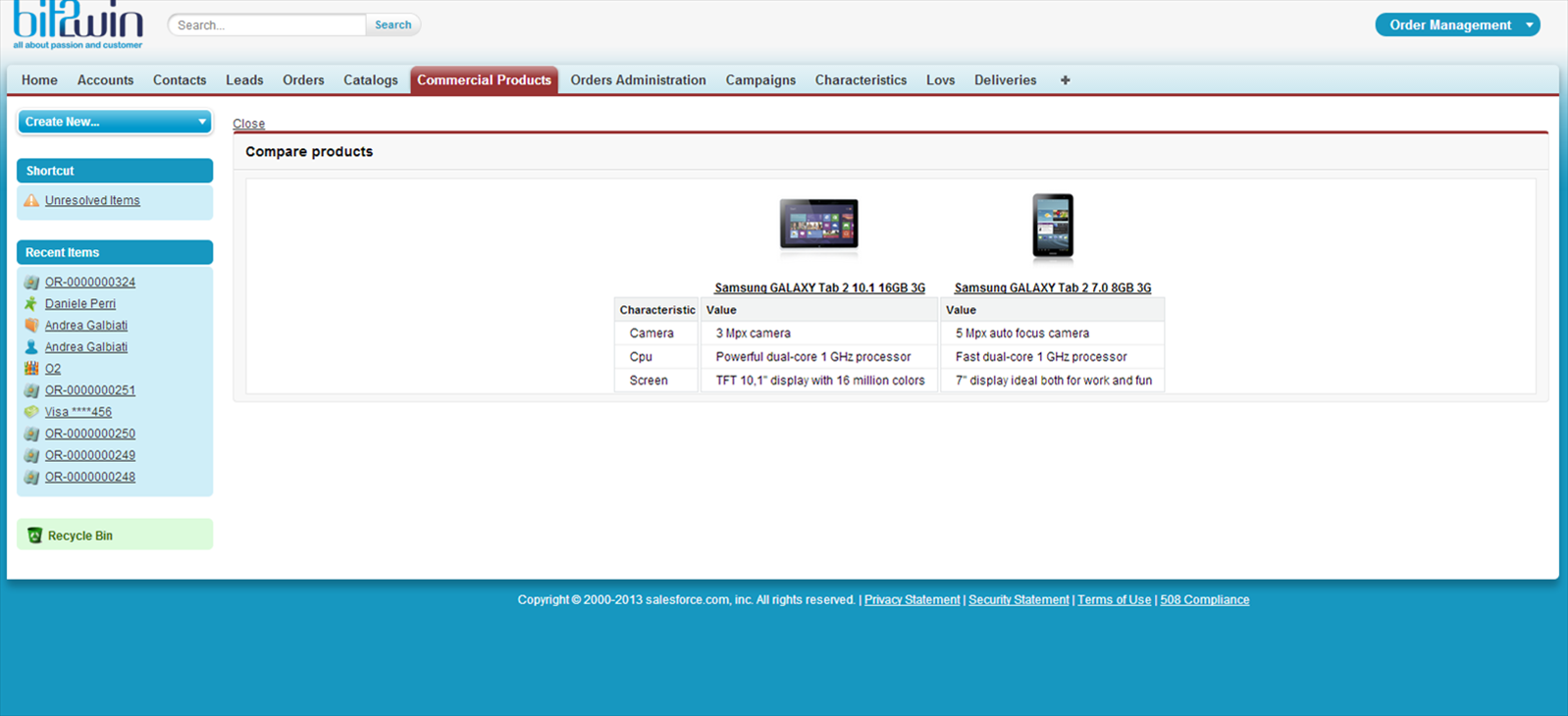
From consultants to SaaS entrepreneurs: today we showcase how New Energy leveraged the Salesforce Platform to build an enterprise app for the Telco industry. New Energy is an ICT company founded in 2005 by a group of IT professionals. It has gained experience on complex and mission critical systems delivered to verticals including telco, automotive, insurance and high tech. As new applications are developed in the cloud New Energy wanted to leverage the power of Salesforce together with its longtime technical skills in Java. The combination of Force.com for core CRM components and Heroku to run Java proved to be ideal.
New Energy’s App: Bit2Win
As an extension to Salesforce CRM, Bit2Win is a “CPQ” application, standing for Configure-Price-Quote. The goal of CPQ is to make the Salesforce CRM and Force.com platforms more configurable and customizable in the areas of catalogue management, order management and pricing. For example it’s customary in Europe for Telco retailers to put together custom offering packages for household customers and businesses defining complex business rules. These can be hard to customize on the fly while understanding vendor’s costs. Bit2Win automates this via a rules engine that lets retailers know instantly defining the promotions’ financial details from customer value to costs.

Fastweb: New Energy’s Customer
Fastweb Wholesale Srl is FASTWEB Spa’s fully-controlled company, since 2007 part of the Swisscom Group. FASTWEB Wholesale focuses on the sales of data, Internet, housing, voice, and Telco infrastructure services to the most important national and international TLC players (both on fixed and mobile network) in the Italian market, and to the Internet Service Providers (ISP).
Bit2Win enabled Fastweb to extend the core functionalities in Salesforce’s Sales Cloud by adding functionalities and customization:
– advanced quote and order management
– adding business rules: product compatibility, constraints, customer eligibility
– advanced pricing: discounts, price override, promotions, commitments, commercial bundles
– upselling and cross-selling by helping sales associates identify the next best offer
Underneath the Covers: Force.com and Heroku
Force.com and Heroku are building blocks of the Salesforce Platform. Where did New Energy use each of them?

The New Energy app is built natively on Force.com. This allows it to have the entire infrastructure abstracted from the application with nothing to maintain. All New Energy needs to do is focus on innovation. Force.com is a declarative platform that allows the definition of objects and workflows that leverage customer objects and CRM functionalities built into Salesforce Sales, Marketing and Service Clouds. Building on Force.com also allows New Energy to sell on the Appexchange and make its application available to the entire Salesforce ecosystem of customers.
With Force.com the bit2win app was on its way. When New Energy looked to create granular business logic through middleware it turned to Heroku to augment the application.

Heroku is an application delivery platform that provides developers with the tools they need to build, deliver, and manage modern and maintainable apps on any device. Using programmatic and open languages like Ruby, Java, Python, PHP, Node.js and Scala you can code, customize, and connect data stored in Heroku with your data stored in Salesforce into one cohesive app. This opens the path for extending Force.com applications and core Salesforce implementations. In the case of New Energy, the team had long-time expertise in Java programming, allowing them to build the functionalities their customers need and deploy the code on Heroku immediately.
New Energy built the following product functionalities on Heroku:
|
Product eligibility |
Decide which products consumers are eligible for based on their past purchases and which segment they belong to. |
|
Upsell recommendations |
Display specific products this customer is most likely to benefit from and like using historical data and market research. |
|
Product compatibility |
Avoid costly product returns by removing incompatible devices with customer phone plans or location from the pick list. |
|
Dynamic pricing |
Manage promotions and discounts based on total purchase and marketing initiatives. |
|
Dynamic product ID integration |
Integrate order management applications with backend systems where product IDs may differ. Automate data flow from the cloud to legacy systems. |
Connect your Apps to Customers with the Salesforce Platform
Using Java or other technologies along with Salesforce? Run them on Heroku and make it all work together.